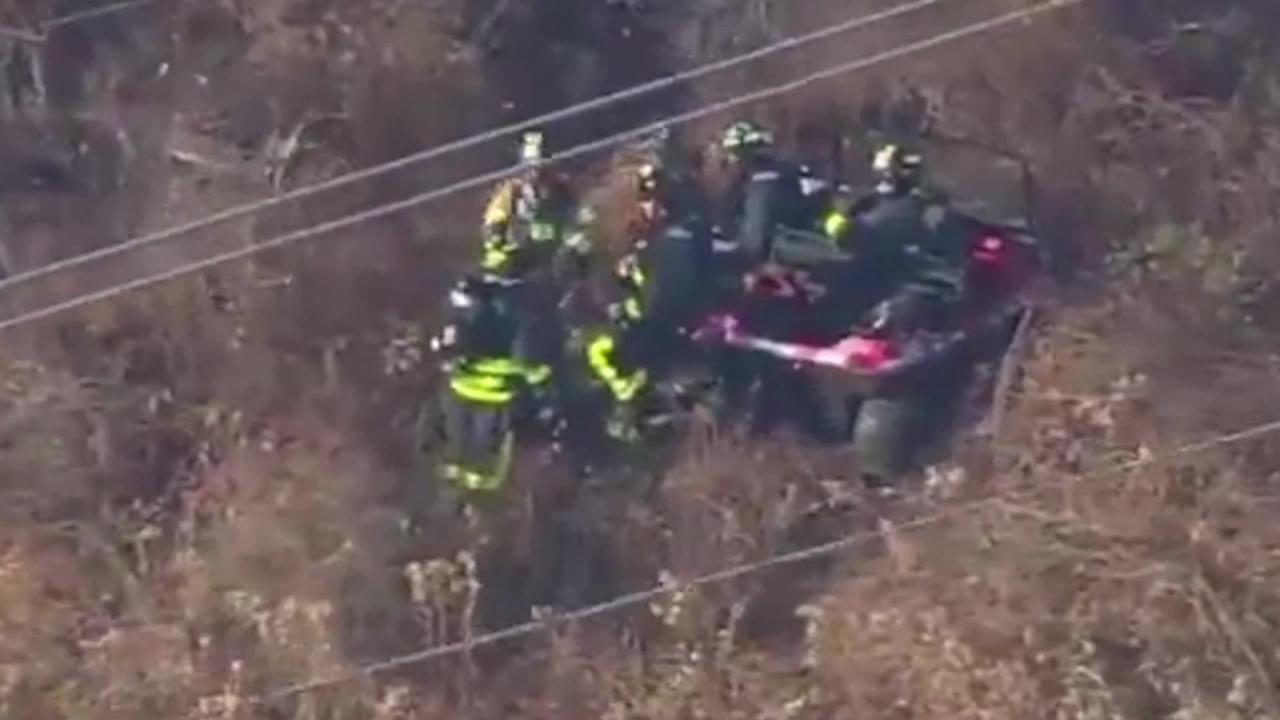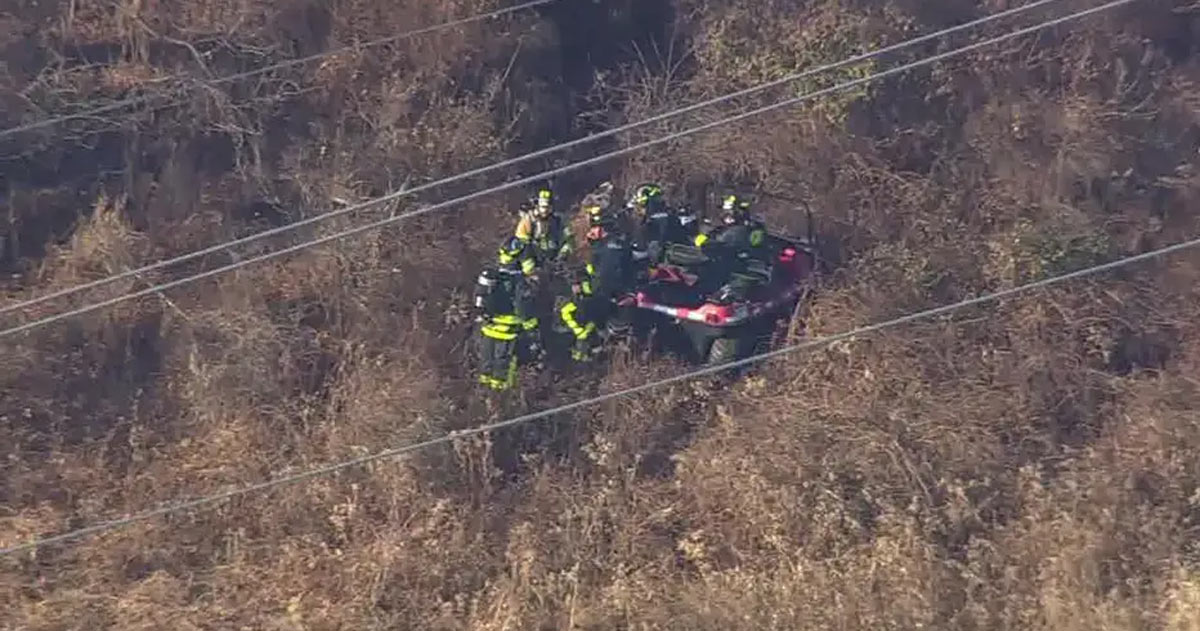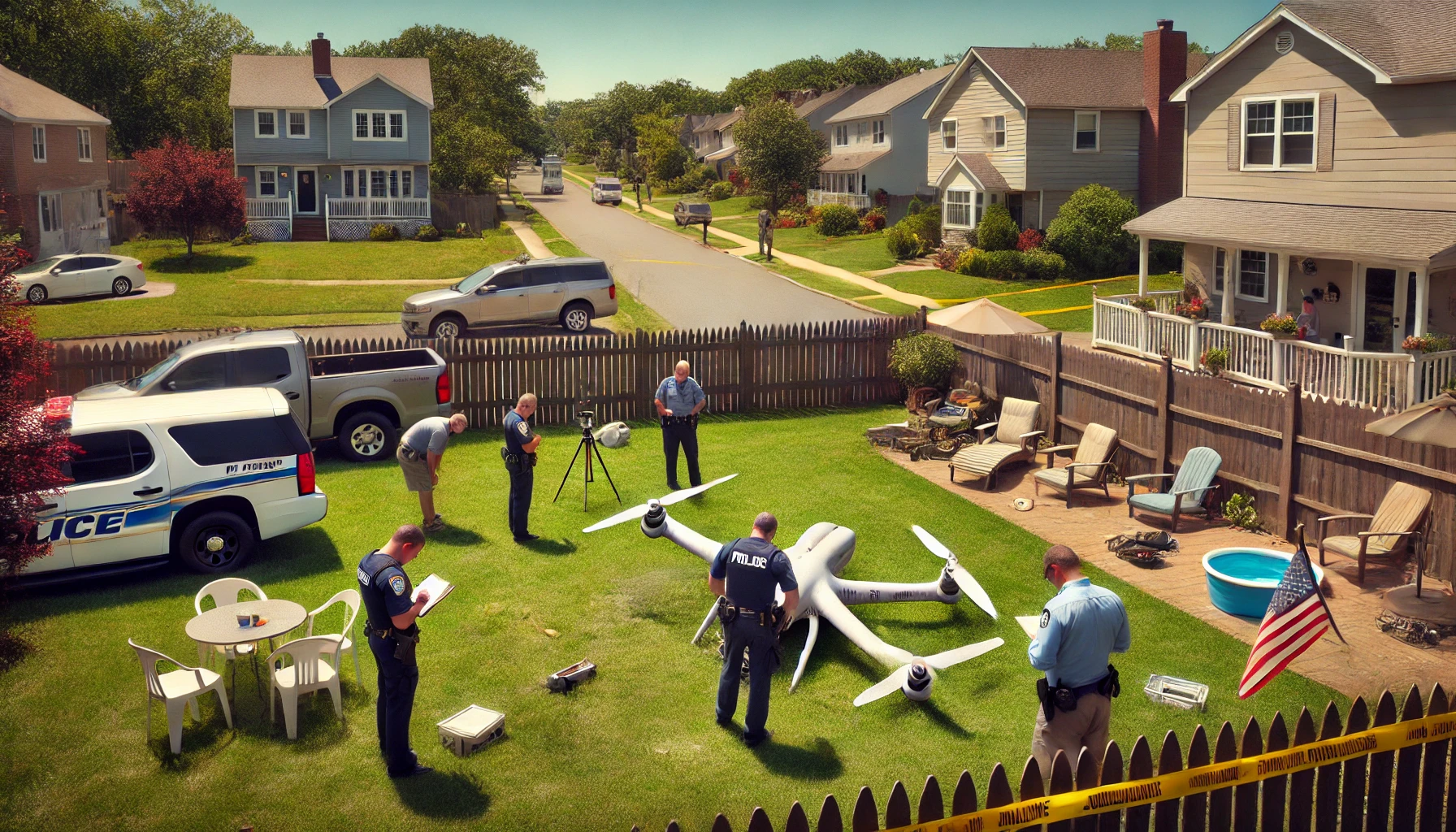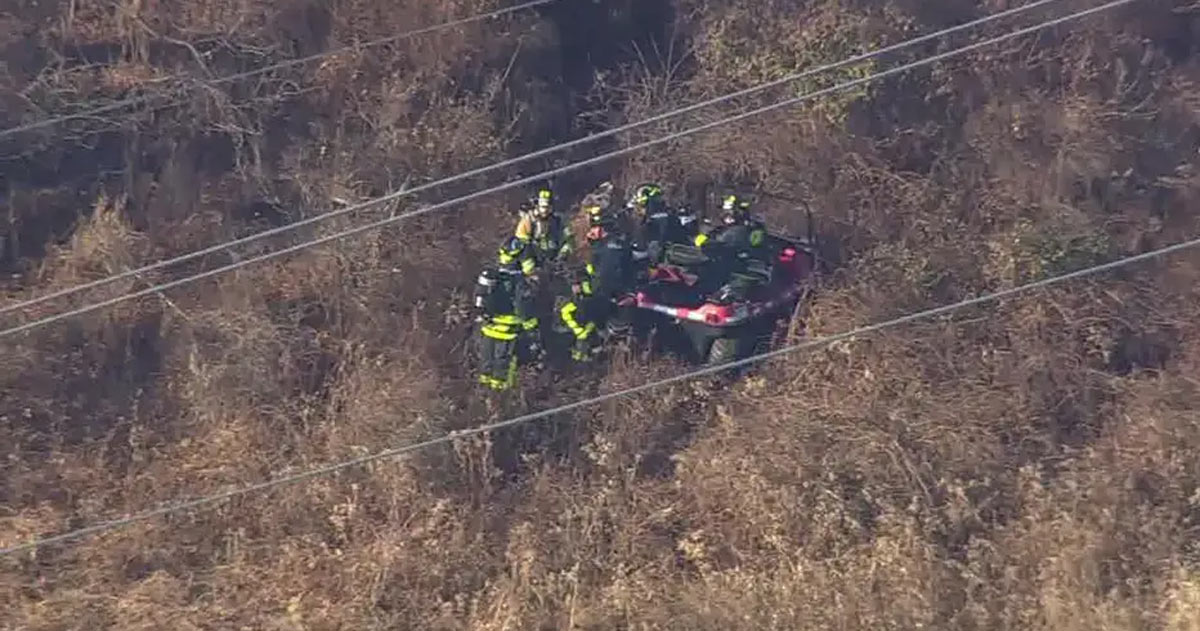Drone crashes in New Jersey are increasingly becoming a concern, demanding attention to safety regulations and technological advancements. This exploration delves into recent incidents, examining contributing factors like mechanical failures, operator error, and environmental conditions. We will analyze the impact of these crashes, discuss existing regulations, and explore potential solutions for mitigating future occurrences. The aim is to provide a comprehensive overview of this growing issue, highlighting both the challenges and opportunities for improvement.
The following sections will detail the specifics of reported drone crashes, including dates, locations, and causes where available. We will also investigate the effectiveness of current regulations and propose recommendations for enhanced safety measures and operator training. Finally, we’ll examine how technological progress might shape the future of drone safety in New Jersey.
Recent Drone Crash Incidents and Their Implications in New Jersey
The increasing popularity of drones in New Jersey has unfortunately been accompanied by a rise in reported incidents involving drone crashes. Understanding the causes, consequences, and regulatory aspects of these crashes is crucial for improving drone safety and mitigating potential risks to both people and property. This article provides an overview of recent drone crashes in New Jersey, exploring the underlying causes, regulatory landscape, and potential future implications.
Recent Drone Crash Incidents in New Jersey
The following table summarizes reported drone crashes in New Jersey over the past year. Due to the varied nature of reporting and data accessibility, comprehensive data on all incidents is challenging to obtain. The information below represents a compilation of publicly available reports and may not be entirely exhaustive.
| Date | Location | Description | Reported Cause |
|---|---|---|---|
| October 26, 2023 | Hoboken, NJ | A DJI Mavic 2 Pro crashed into the Hudson River after experiencing a sudden loss of signal. | Possible operator error; signal interference. |
| August 15, 2023 | Princeton, NJ | A custom-built drone malfunctioned mid-flight, resulting in a crash into a residential backyard. | Mechanical failure; suspected battery issue. |
| June 10, 2023 | Atlantic City, NJ | A small drone collided with a seagull during a coastal flight. | Collision with bird. |
| March 5, 2023 | Newark, NJ | A drone operated by an inexperienced pilot crashed into a parked car. | Operator error; lack of experience. |
The types of drones involved varied, including popular models like the DJI Mavic 2 Pro and several custom-built drones. Specific details about operator experience levels were only available in some cases, highlighting the need for improved data collection and reporting.
Causes of Drone Crashes in New Jersey

Drone crashes in New Jersey stem from a combination of factors. While comprehensive statistics are limited, the most prevalent causes generally include:
- Operator Error: This encompasses a range of issues, from inexperienced pilots making mistakes to experienced pilots misjudging conditions or failing to follow safety protocols. Many crashes involve loss of control, poor navigation, or flying in unsuitable weather.
- Mechanical Failure: Malfunctions in drone components, such as motors, propellers, batteries, or electronic systems, can lead to sudden crashes. Poor maintenance or use of faulty parts are often contributing factors.
- Environmental Factors: Strong winds, rain, snow, or interference from other electronic devices can negatively impact drone stability and flight performance. Birds, trees, and other obstacles also pose collision risks.
Operator error appears to be a significant contributing factor in many reported incidents, suggesting a need for enhanced operator training and stricter adherence to safety guidelines. Mechanical failures, while less frequent, can have severe consequences, emphasizing the importance of regular drone maintenance and using high-quality components.
Hypothetical Scenario: Imagine an inexperienced drone operator, flying a drone near a busy airport without proper authorization or awareness of airspace restrictions. Strong winds unexpectedly buffet the drone, causing the operator to lose control. The drone crashes into a nearby building, causing minor property damage and potentially injuring someone on the ground. This highlights the consequences of negligence and the importance of responsible operation.
Regulatory Aspects and Safety Measures
Drone operation in New Jersey is governed by both federal (FAA) and state regulations. Key aspects are Artikeld below:
| Regulation/Guideline | Description |
|---|---|
| FAA Part 107 | Federal regulations governing the operation of commercial drones, including licensing requirements and operational limitations. |
| New Jersey State Laws | State-specific regulations may exist regarding drone usage in certain areas, such as near airports or critical infrastructure. |
| Local Ordinances | Municipalities may have additional rules concerning drone operation within their jurisdictions. |
While existing regulations provide a framework for safe drone operation, their effectiveness is challenged by inconsistent enforcement and the rapid evolution of drone technology. Improvements are needed to enhance clarity, enforcement, and adaptability to new technological advancements.
Recommendations for improvement include strengthening operator training programs, increasing public awareness campaigns on safe drone operation, and implementing more robust reporting and investigation procedures for drone incidents.
Impact and Consequences of Drone Crashes

Drone crashes can have significant consequences, depending on several factors, including the size and weight of the drone, the location of the crash, and the circumstances surrounding the event. Potential consequences include:
- Property Damage: Drones can cause damage to buildings, vehicles, and other property.
- Injuries: Falling drones can injure people on the ground.
- Disruption to Public Services: Crashes near critical infrastructure, such as power lines or airports, can cause significant disruptions.
For example, a drone crash near an airport could temporarily halt flights, causing major delays and economic losses. In urban areas, the higher density of people and infrastructure increases the potential for significant consequences compared to rural areas where the impact might be less severe, but still potentially damaging to property or livestock.
Technological Advancements and Future Implications

Technological advancements hold significant potential for enhancing drone safety. Improvements in battery technology, autonomous flight capabilities, and obstacle avoidance systems are expected to reduce the frequency and severity of crashes.
Autonomous flight systems, equipped with advanced sensors and AI-powered obstacle avoidance, could significantly mitigate the risk of collisions. Improved battery technology could extend flight times, reducing the pressure on operators to complete flights quickly, potentially leading to fewer incidents caused by time constraints. However, reliance on technology also presents challenges. System failures, software glitches, and cyber vulnerabilities could introduce new risks.
Hypothetical Future Scenario: Imagine a future where drones are equipped with sophisticated sensor suites, including lidar, radar, and advanced computer vision. These systems work in conjunction with GPS and air traffic control systems to ensure safe and autonomous flight. Real-time obstacle avoidance, geofencing, and automated emergency landing procedures significantly reduce the risk of crashes, making drone operations safer and more reliable.
Recent drone crashes in New Jersey highlight the importance of safe drone operation. Understanding payload capacity is crucial; for instance, checking the specifications for remington drone loads can help prevent overloading, a common cause of accidents. Ultimately, responsible handling remains key to minimizing future drone crashes in the state.
This scenario reflects a future where technology plays a critical role in minimizing the risks associated with drone operation.
The rise in drone incidents in New Jersey underscores the urgent need for proactive measures to ensure safer operation. While technological advancements offer promising solutions, responsible drone operation and robust regulatory frameworks remain crucial. By understanding the causes of these crashes and implementing effective safety protocols, we can strive towards minimizing risks and maximizing the benefits of this rapidly evolving technology.
Continuous monitoring, improved operator training, and technological innovation will be key to navigating the challenges and shaping a safer future for drone use in New Jersey.
Query Resolution: Drone Crashes In New Jersey
What is the FAA’s role in regulating drones in New Jersey?
Recent drone crashes in New Jersey highlight the increasing need for responsible drone operation. For a different perspective on aerial surveillance, you might find the port dover live camera interesting; it offers a real-time view of a different location entirely. Understanding various perspectives, including those from different geographical areas, helps us better analyze the causes and consequences of drone incidents like those seen in New Jersey.
The Federal Aviation Administration (FAA) sets the national standards for drone operation, including registration, certification, and airspace restrictions. New Jersey state regulations may add further limitations.
What kind of insurance is recommended for drone operators in New Jersey?
Liability insurance is highly recommended to cover potential damages or injuries caused by a drone crash. The specific coverage needed will depend on the type of drone operation and the potential risks involved.
Where can I find a comprehensive list of New Jersey’s drone regulations?
The FAA website and the New Jersey Department of Transportation website are good starting points. It’s advisable to check for updates regularly as regulations can change.
Are there any specific no-fly zones for drones in New Jersey?
Yes, many areas, including airports, critical infrastructure, and certain public events, are designated no-fly zones. Consult the FAA’s B4UFLY app or website for up-to-date information.
